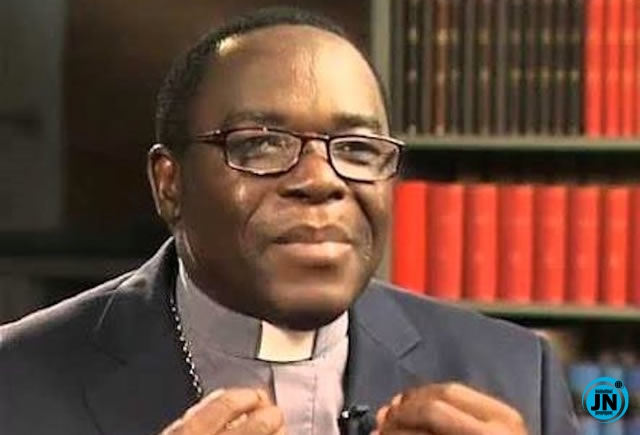Bishop Mathew Kukah, founder of The Kukah Centre, has expressed optimism regarding the controversial tax reform bills introduced by President Bola Tinubu’s administration. According to him, these reforms have the potential to address the long-standing issue of financial mismanagement and recklessness that has plagued Nigeria, particularly among the elite class.
During an interview on Channels Television’s Morning Brief on Tuesday, Bishop Kukah emphasized the need for the Federal Government to structure these reforms in a manner that would not only curb financial wastage but also promote sustainable national development. He urged stakeholders to focus on creating systems that harness the nation’s abundant resources and talents effectively.
The tax reform bills, currently under review by the National Assembly, have generated significant debate nationwide. While proponents believe the reforms are essential for economic revitalization, critics argue that they unfairly target specific regions and are likely to impose further financial burdens on already struggling Nigerians.

Reflecting on Nigeria’s current state, Kukah remarked, “Nigeria is an extraordinarily vibrant country, filled with citizens who are gifted, ambitious, and eager to excel. Unfortunately, the failure of state mechanisms to provide adequate platforms for these individuals to thrive has often led to frustration, which sometimes manifests in violent outbursts.”
He continued, “Our inability to channel the energy, vision, and competing narratives of our citizens into constructive endeavors is a significant issue. This is why the introduction of reforms, such as the tax reform bills, is critical. Although I am still in the process of educating myself about the specifics of these reforms, I am hopeful that they will play a pivotal role in getting our deeply dysfunctional country back on track.”
Kukah also highlighted the importance of these reforms in addressing the irony of Nigerians living in a richly endowed nation but suffering due to the persistent mismanagement of resources by the elite. “We must move away from the narrative of a country blessed with abundant resources, yet its people are forced to endure extreme hardships while a privileged few indulge in financial irresponsibility,” he said.
He further stated, “The tax reform bills should serve as a wake-up call to end the era of financial recklessness. They should create a new framework for fiscal responsibility and efficiency, one that ensures equitable resource management and drives the growth and development of Nigeria into the prosperous nation its citizens dream of.”
Bishop Kukah expressed hope that these reforms represent the beginning of a transformative journey toward improved fiscal management, national development, and economic stability. He urged Nigerians to engage in informed discussions about the reforms, emphasizing the importance of understanding their implications and potential benefits for the country’s future.

